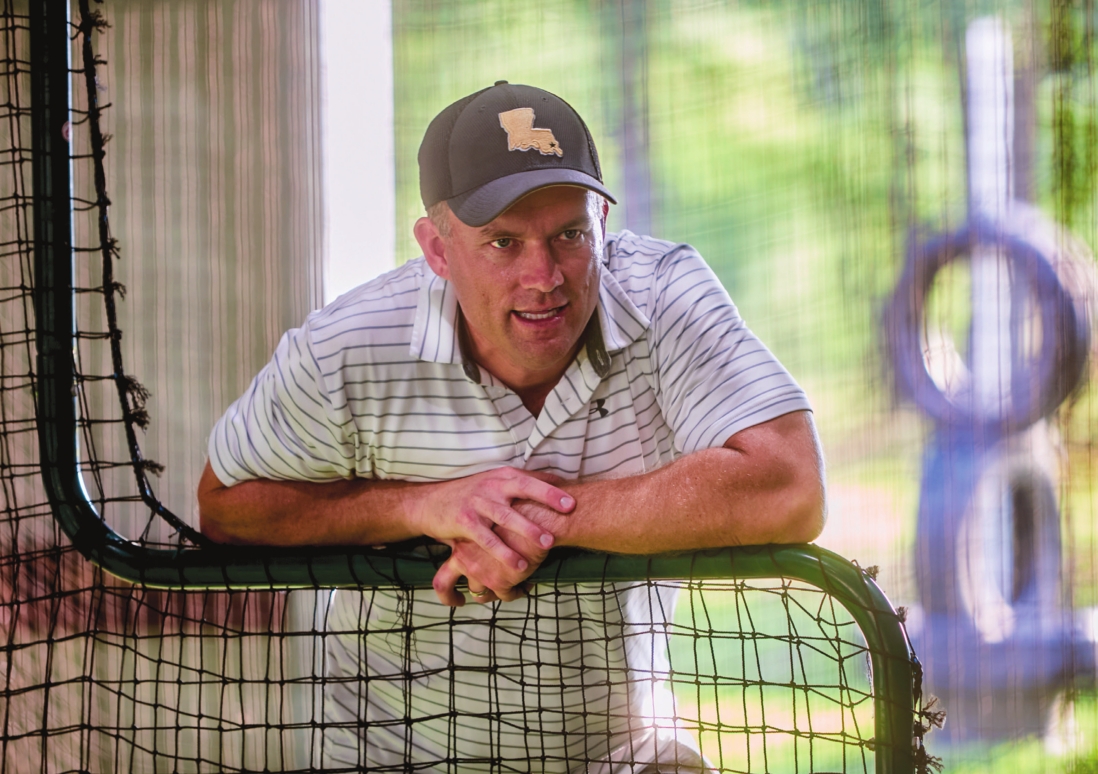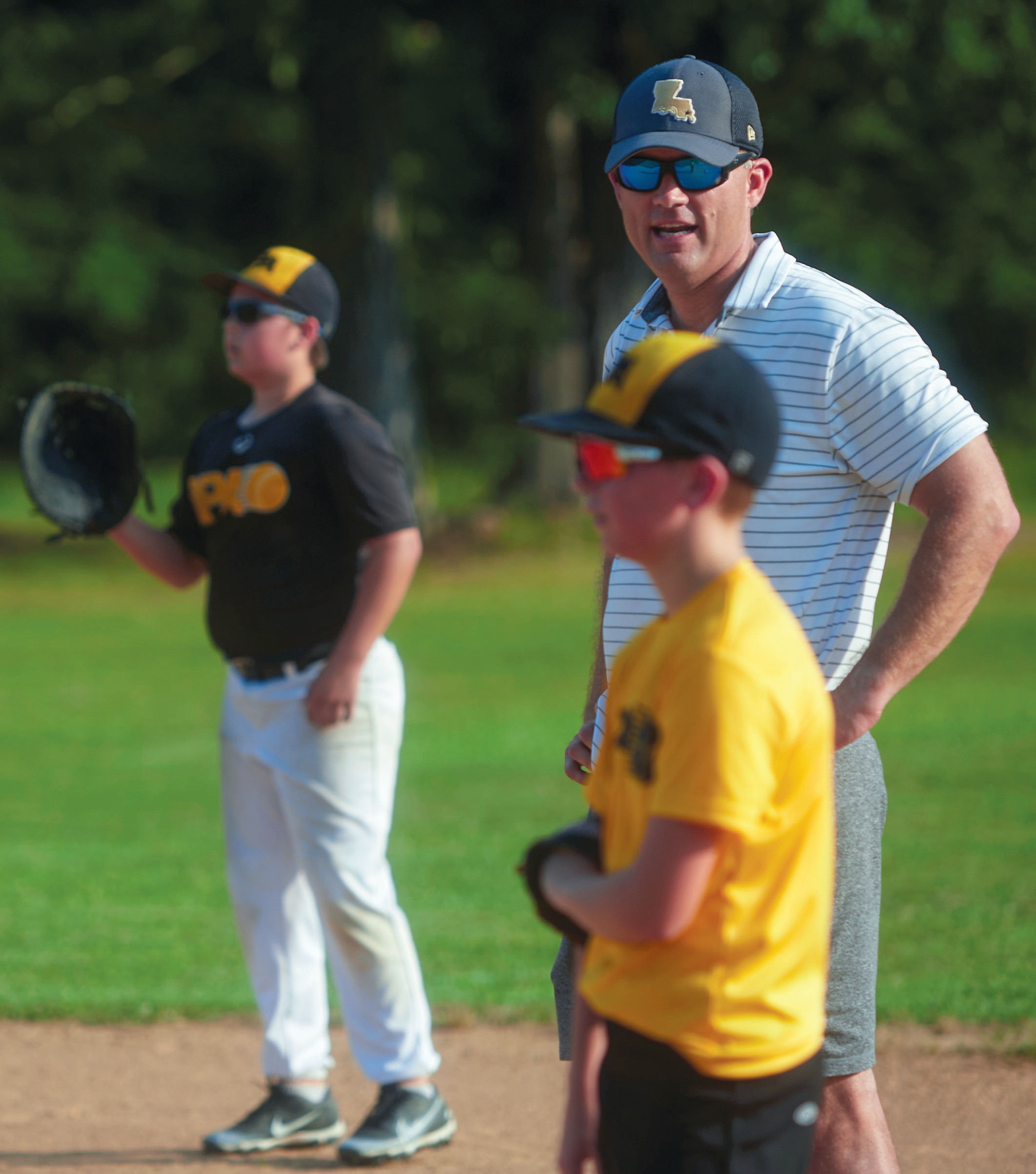Fighting for Those Who Don’t Make the Rules

Attorney Scott Chafin understands the importance of helping others
Not all 13-year-olds, maybe only a few, know what they want to do when they grow up.But Scott Chafin Jr. knew. Unfortunately, he had to go through disappointment and heartache to find his future.
“I was on a summer AAU baseball team, and we were good,” Chafin said. “It was back and forth between us and this other team all summer long in every tournament we played as to who finished first and who finished second. We knew that when the state AAU tournament came up, one of us was going to win it.”
But on the Tuesday before play began, the Chafins’ kitchen phone rang. Scott’s father answered, listened and hung up.
“Man, I’ve got some bad news,” he told his son. “The AAU board just passed a rule that if you live more than 80 miles away from where your team is based, you can’t play in the state tournament.”
Chafin lived in Ardmore, Oklahoma. His team was based in Norman, Oklahoma. The distance between the two? 82 miles.
“I asked my parents, ‘What are we going to do about it? What can we do?’” His mother’s answer would lead to her son’s career as an attorney.
“There’s nothing we can do about it because we don’t make the rules.”
Chafin went to his room, Mom’s words playing over and over in his head.
“I swore I would always fight for the people who don’t make the rules. That’s what I’ve been doing every day since.”
The recently turned 45-year-old Chafin is in his 20th year as an attorney — 19 of those in private practice. But he hasn’t forgotten that day 32 years ago.
“It still motivates me. I’ve got that picture on my desk from the state tournament where we finished second, and I’m not in the picture. As I’ve gotten older, I realize people get excluded from things a lot more serious than a 13-year-old’s baseball tournament. I see that on a daily basis, and that’s what I fight for.”
Chafin was born in Lake Charles. His family was originally from south Louisiana — Chafin’s mother spoke Cajun French. But Chafin’s father was in law enforcement, which meant the family moved around, first to Baton Rouge, then Ardmore, Okla., where Chafin’s dad was with the FBI. But wherever the young Chafin went, he carried his love of baseball.
“My grandfather used to take the whole family to the (Houston) Astrodome several times a year. Back then, it was general admission — one or two dollars. We would get there hours before — when the gates opened. We would have the whole family, 20 or 30 of us, lined up in the front row of left field. Seven, 8, 9, 10 years old, you could run all the way around the Astrodome — complete access. It was like my playground.”
Yes, Chafin comes from a big family — a family surrounded by sports. His grandfather played for the NFL’s New York Giants. One uncle played quarterback at LSU. Another uncle played for the New Orleans Saints.
“Going to Saints training camp at 5 years old and having my uncle, who punted for them, show up at my flag football game was just the coolest thing in the world.”
Chafin played baseball (first base and pitcher) in high school and at McNeese State University, where he majored in English. But one lesson Chafin learned — the importance of helping others — wasn’t taught in the classroom or on the diamond.

When he’s not watching baseball, Scott Chafin works hard to be the best attorney possible.
“My grandfather was on the Calcasieu Parish School Board for more than 20 years. I remember being at the house on a Saturday morning watching football together. The phone would ring. He would answer, listen and say, ‘OK, hold on. You’re going to get a call from somebody in a second who is going to try to help you out.’ He would call somebody and say, ‘Look, Miss So-and-So called. It’s a good family. I coached her brother. I know them all. Her son got into a little trouble and needs a little help at school. Can you just help him out?’”
Then, there was the time Chafin’s father was about to leave home for a potentially dangerous assignment.
“He was going on a SWAT call one night, and he sat down on the edge of the bed before he went out. He said, ‘I want you to know if I ever don’t come back from something, I will have died helping people the best way I know how.’”
One way Chafin is helping others has to do with, not surprisingly, baseball.
“Me and a good friend were coaching my 16-year-old’s team. We just couldn’t find a place to practice. It would be five o’clock. I would have to hurry up and change and race to the field. We got in an hour of practice time. I was scratching my head thinking, ‘Man, I’m not doing these boys justice.’”
Just so happens that’s when Chafin was looking for a new location for his expanding law firm.
“I saw an old sign shop on four acres on Linwood Avenue. I was like, ‘Oh, my gosh! I can kill two birds with one stone and have a place for the community to come.’”
We’re not talking about a field of weeds with some dirt and bases. Justice Field has a full-size infield, complete with a shell covering to keep foul balls from breaking nearby windows and an indoor facility with two batting cages.
Chafin said this past fall, six teams practiced at Justice Field — and they didn’t pay a dime.
“I have a bone to pick with people who make a whole bunch of money off youth sports. I see what that cost. I think for as long as we can, we should keep the purity of the competition and the team building the way it was meant to be when we all had a sandlot to play on. I am not here to make money off youth sports.”
Chad Deas found that out when his newly formed travel ball team was looking for a place to practice.
“I offered to pay,” Deas said. “He said, ‘Absolutely not. I don’t want anything for this. I want kids to enjoy the game of baseball.’”
Deas has seen Chafin’s generosity extend beyond the diamond.

Chafin’s Justice Field has a full size infield, complete with shell, and an indoor facility with two batting cages. Six teams played there this year and didn’t have to pay a dime.
“Earlier this spring, he calls me up and says, ‘Hey, man, I’ve got a group. We’re going on a deep-sea fishing trip. All paid expenses. I’ve got two open spots.’ He wanted me and one of my assistants to come with them. It didn’t work out for us; it fell through, but he’s always looking to help kids and other people. He puts them first. He’s just a likable guy who goes over and beyond to help other people that he doesn’t have to.”
When he’s not watching baseball, Chafin tries to be the best attorney possible. He said he’s been asked about other aspirations, like going into politics. But all these years later, being bounced from that baseball tournament — and not being able to make the rules — continue to fuel his fire.
“This is what I love. Every day since I was 13, I’ve been running towards fighting for people who don’t make the rules and pursuing my passion. This is my passion. I’ve got no interest in doing anything else. My focus every single day is my practice and my clients.”
“He’s a people person,” Deas said. “I’ve never had a cross word with him. I’ve never seen him have a cross word with anybody. He’s a likeable guy. He just cares about the kids in this community and wants them to have somewhere to play. He’s become friends with a lot of the parents who are on my team. … He’s just a genuine guy. If the area had a whole lot more people just like him, we would be a whole lot better off.”
